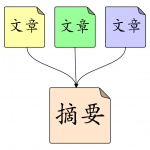Articles tagged with ‘Feedback’
-
How to learn Chinese pronunciation as a beginner
Pronunciation is an important, yet often neglected part of learning Chinese. The earlier you get the sounds and tones down, the better, but how should you approach learning these things as a beginner?
Read → -
20 tips and tricks to improve your Chinese writing ability
Writing is one of the four basic language skills, and one that learners of Chinese struggle with a lot. Good writing is based on lots of reading, but beyond that, there are plenty of other things you can do to improve your writing ability in Chinese beyond the characters themselves. Here are twenty tips and tricks!
Read → -
Training your Chinese teacher, part 4: Writing ability
Writing ability is largely determined by how much you read, but there are many areas where a teacher can help you through valuable feedback. This article looks at this process, discussing what activities to engage in and what role your teacher can play.
Read → -
How to get honest feedback to boost your Chinese speaking and writing
Feedback is important because it can show you how to not use the language and highlight things you hadn’t noticed before. But getting honest feedback when learning Chinese is not as easy as it seems. This article starts by looking at why feedback is necessary, and continues by discussing how to get honest feedback.
Read → -
Hone your Chinese writing ability by writing summaries
Writing summaries is an excellent combination of reading and writing practice. It’s one of the most powerful learning activities I know when it comes to improving writing ability. In this article, I discuss how to improve writing ability in general, but with a clear focus on why and how writing summaries should be part of your study routine.
Read → -
Why good feedback matters and how to get it
Teachers give feedback in many different ways, some terribly bad, others very good. The bad ones let you struggle for hours just to correct your essay, not necessarily learning much on the way. The good ones not only allow you to correct your essay, you also feel that you’re learning a lot and won’t make the same mistakes again. This article sets down some guidelines for how to give good feedback, useful for both students and teachers.
Read → -
Improving your spoken and written Chinese by focusing on the process
Focusing on the process rather than the result has obvious benefits when trying to learn a foreign language. Does it really matter what number your teacher puts on the final version of your essay? No, what matters is what you learnt and what you will be able to improve until next time. Process writing is common enough, but this article extends the concept to speaking as well, which is a much neglected technique in language learning.
Read → -
You might be too lazy to learn Chinese, but you’re not too old
Children learn languages neither quickly nor effortlessly, but there’s still a lot we can learn from them. You might be too lazy, but you’re definitely not too old to learn Chinese.
Read → -
Using Lang-8 to improve your Chinese
Learning a foreign language, most people lack proper feedback from native speakers. Even if we have friends and teachers, always having to ask for help isn’t very good. In this article, I explain how Lang-8 solves this problem for you. Useful for any language, not just Chinese!
Read →







